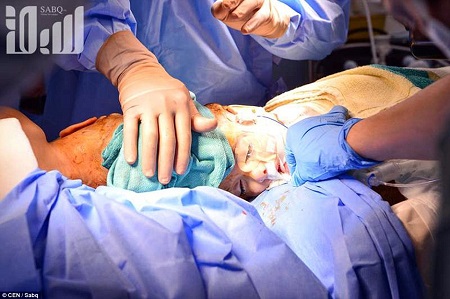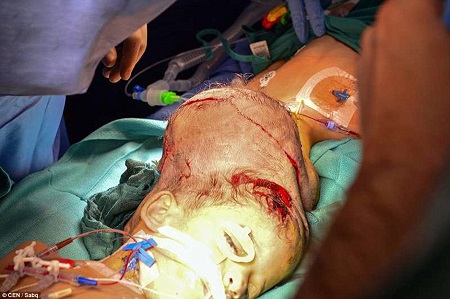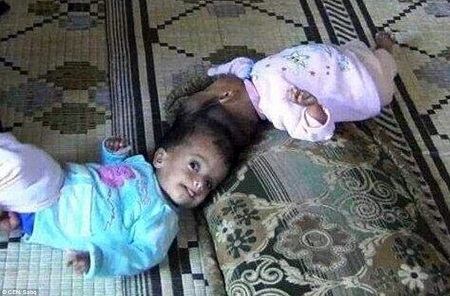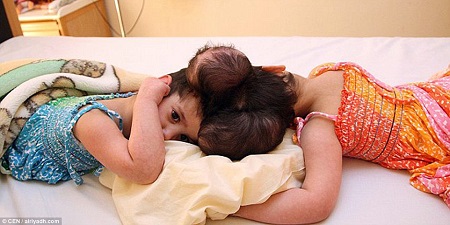See Photos Of Beautiful Twin Girls Joined At the Head Separated by 22 Doctors After a 10-Hour Operation [Graphic photos]
Two girls who were at birth cojoined at the head, have been separated four years after by as many as 22 doctors in a 10-hour surgery.
The twin girls before the operation
Conjoined twins joined at the head have been successfully separated in an operation involving 22 doctors and nurses that was carried out this weekend.
Daily Mail reports that the surgery on the female twins, Tuqa and Yakeen Al Khadar, who were conjoined since birth was carried out at the Specialist Children’s Hospital in the Saudi Arabian capital of Riyadh.
According to a hospital spokesman, the surgery was actually the fourth and final stage to be performed on the Syrian twins.
The spokesman said: ‘The hospital has performed preparatory surgeries since April 2014 on the twins’, adding that there was a remarkable progress in all the efforts.

The twin girls during the operation
Dr Ahmad Al-Furrayan, who was in charge of the operation, said it took 10 hours instead of the 12 hours that had been planned and was carried out in stages.
He said: ‘The twins were conjoined at the head and that meant this was one of the most complicated and difficult Siamese cases.’
The sisters had been conjoined since their birth four years ago, sharing a skull but not a brain. This means they were craniopagus twins, a phenomenon occurring only once in every 2.5 million births.
The girls’ plight first came to light in 2013 when their father appealed for King Abdullah of Saudi Arabia to help with treatment.

The operation in progress
Despite needing urgent surgery Hussein Al Khadr said he could not afford it due to supporting a family of 11 in war-ravaged Syria, Emirates247.com reported.
At the time, the twins were 16 months old.

The twin girls while they were mere toddlers
Saudi Arabia has performed 37 surgeries on Siamese twins since 1990 with cases coming from 18 different countries including Sudan, Syria, Yemen, Egypt, Malaysia, the Philippines, Poland, Morocco and Iraq.
The costs are being borne by the Saudi government as a humanitarian gesture.


Comments
Post a Comment